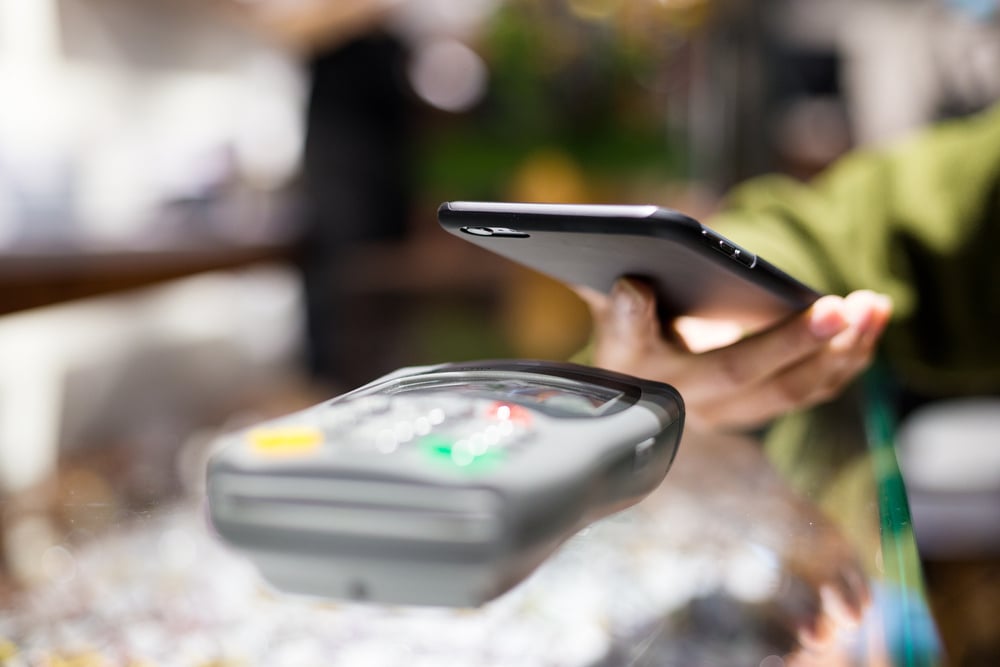4 Digital Wallet Mistakes You Could Be Making
Technology has the potential to make our lives easier in so many ways. A digital wallet is a financial app that stores payment information and...
Manage your everyday finances with convenient accounts, flexible cards, and personalized service designed to fit your life.
At First Federal Bank, we offer flexible mortgage solutions for almost any situation, helping you secure the right financing for your dream home.
Business banking offers secure financial management, streamlined transactions, credit options, and tools to help businesses grow efficiently and sustainably.
2 min read
First Federal Bank : October 22, 2021 10:00:00 AM EDT

 Though you try to protect your vital information when shopping online, the risk of having your credit card information compromised is higher than ever. Even with advanced security protocols, you could find yourself a victim of credit card fraud. Fortunately, recovering from this kind of situation is a straightforward process — so long as you know what to do and when to do it.
Though you try to protect your vital information when shopping online, the risk of having your credit card information compromised is higher than ever. Even with advanced security protocols, you could find yourself a victim of credit card fraud. Fortunately, recovering from this kind of situation is a straightforward process — so long as you know what to do and when to do it.
Act fast
One of the surest ways to protect yourself against the effects of credit card fraud is to check your statement balances regularly. If you have a mobile banking app or access to online banking, Gail Hillebrand of the Consumer Financial Protection Bureau notes you can easily monitor your card activity on a daily basis, which makes it easier to catch when something is awry.
According to Hillebrand, your first action the moment you notice suspicious activity should be to contact your card provider or financial institution. The quickest way to take action would be to call — most financial institutions have a toll-free number through which you can report the unauthorized charges.
Hillebrand also recommends following the initial contact with a written letter, which you should copy to keep for your personal records. Take note of the date and time when you initially contact the card provider and any follow-up calls.
Once notified, your financial institution will freeze your account and you’ll receive a replacement credit card with updated information thereafter. If the affected credit card is attached to any recurring bill payments, NerdWallet consumer savings expert Courtney Jespersen notes you will need to update each payment to the updated card to avoid late payments, which can impact your credit score.
You may also want to consider contacting law enforcement to report credit card fraud. Experian recommends starting by visiting IdentityTheft.gov, the Federal Trade Commission’s website for reporting cases of identity theft. Experian only recommends contacting a local law enforcement agency if you are advised to do so by your credit card provider.
In most cases, identifying fraudulent purchases will quickly lead to the charges being removed from your statement. Typically, a short investigation will take place and your card provider will confirm its findings at the conclusion. Hillebrand says this process takes upwards of 10 business days, but the transactions may temporarily be refunded prior to the close of the investigation.
Hillebrand also notes you have options if you’re unsatisfied with how your case is handled. You can submit a complaint online through the Consumer Financial Protection Bureau’s website or by calling a toll-free number.
Take preventative measures
Once you have addressed the fraudulent charges and protected your card against any additional activity, you will need to take steps to re-secure your identity. Jespersen suggests logging into your online banking or mobile banking app to make sure all of your information is correct. Take the time to verify your phone number and email address are current.
You should also update your account password as soon as possible. Jespersen notes you’ll want this to be a unique password from any others you use. Ensure your new password is sufficiently complex by mixing lowercase and capital letters, numbers, and unique characters. If you aren’t already, you can also enable two-factor authentication as well as any biometric security options for additional protection.
Having your credit card compromised can be a frightening situation that leaves you feeling vulnerable and confused. But if you act quickly and with a calm approach, you can mitigate any and all damage and get back to shopping with confidence.

Technology has the potential to make our lives easier in so many ways. A digital wallet is a financial app that stores payment information and...

Phishing is an all too common way for scammers to learn your personal information and access your financial accounts. To help prevent yourself from...

If your business has grown to operating in more than one state, you will need to file taxes for each location. Doing so can be tricky, but knowing...
Manage your accounts, make payments, and more.
Open an account with us.